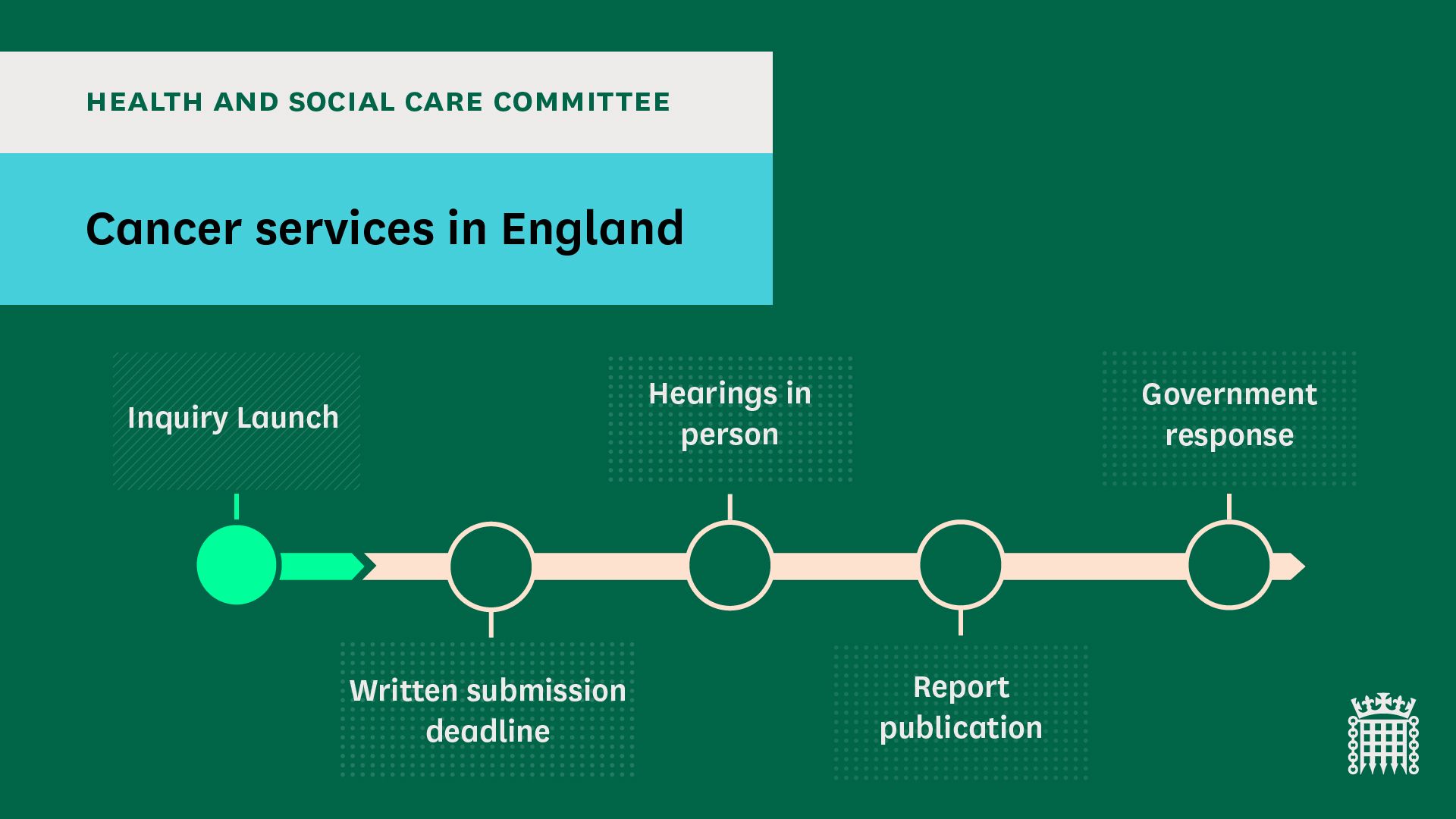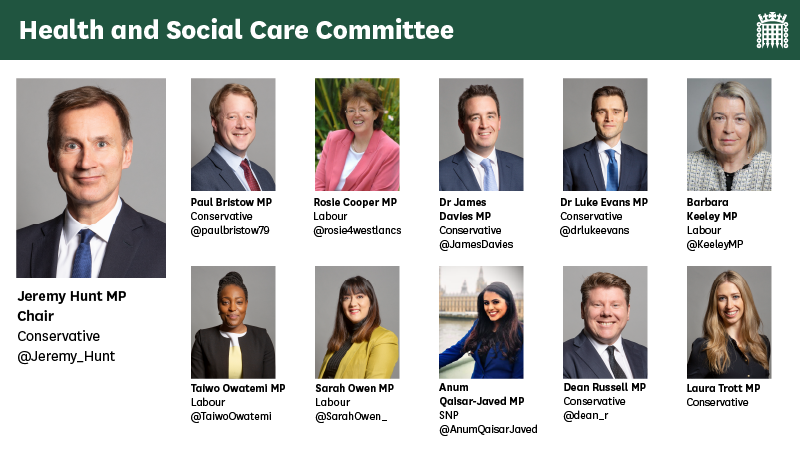How can the Government improve cancer outcomes in England?
The Health and Social Care Committee is launching a new inquiry

Why has the committee decided to look into cancer services?
One in two people will be diagnosed with cancer at some point in their life.
The proportion of people in England who survive their cancer diagnosis has been improving over time due to advances in early diagnosis and treatment. 50% of people diagnosed with cancer now survive their cancer for 10 years or more – double the percentage who survived 40 years ago.
However, several studies have shown that cancer survival in England is lower than the best performing countries.
For example, five-year survival from colon cancer was 59% in England in 2014, according to a study by the International Cancer Benchmarking Partnership, a leading international research collaboration.
For the same type of cancer, survival in the other countries in the study was:
- Australia, 71%
- Canada, 68%
- Denmark, 65%
- Norway, 65%
- New Zealand, 62%
Why does England lag behind other countries?
One possible reason is that in England we tend to diagnose cancers at a later stage than other countries, and survival is generally higher when people are diagnosed at an early stage.
But this isn’t the whole story, because for some cancers like ovarian cancer, survival is worse than in some other countries, even when diagnosed at the same stage. This could mean there are problems in treatment.



The focus of our inquiry
Our inquiry will look in more detail at the reasons why the proportion of people surviving cancer for longer is lower in England, and ask what the Government and the NHS need to do to catch up.
We’re asking anyone with experience and expertise in cancer services to send us their thoughts on the questions below:
- Why are cancer outcomes (like survival from cancer) in England – worse than similar countries internationally?
- How will covid-19 affect efforts to catch up to the best countries?
- Will putting the NHS Long Term Plan into practice mean England catches up with the best countries internationally?
What can I expect
from the inquiry?

Written submissions
The committee will assess the written submissions received. This means we will read them all and note the key points made. Most of the submissions will be published on our website and will be available for anyone to read.
Oral submissions
We will invite experts, academics, staff employed in cancer services and people with experience of cancer to talk to the committee. We will ask them questions about cancer survival, impact of covid-19 on cancer services and on what England can do to catch up with countries with better survival.
Oral evidence sessions can be watched live or on demand on parliamentlive.tv. We also publish transcripts of our sessions.
The first of our oral evidence sessions will be on Tuesday 13 July.

The impact of our inquiry
We will analyse the written and oral submissions and will form our conclusions. We will make recommendations to the Government on how to improve cancer survival in England, which will be published in a final report.
The Government must respond to our report within two months of its publication.
We want to hear
from you

How can you take part in our inquiry?
- You can send us a written submission on the points explained above using our portal.
- You can share our call for evidence
- You can watch our evidence sessions
- You can follow us on Twitter, or check our inquiry page should there be more opportunities to contribute.
We want everyone's voice to be heard. If you would like to send a written submission and have never sent a submission to a committee before, or are unsure about how to write it, or need any advice or adjustments, please get in contact with the committee's staff at hsccom@parliament.uk
The Health and Social Care Committee

What we do:
We scrutinise government and in particular the work of the Department of Health and Social Care. We also scrutinise the work of public bodies in the health system in England, such as NHS England and Improvement, Public Health England and the Care Quality Commission, and professional regulators such as the General Medical Council and the Nursing and Midwifery Council.
We do so by holding inquiries on specific topics and accountability hearings with the Secretary of State, and Chief Executives of relevant public bodies.
We ask questions and gather evidence, listen to witnesses, draw conclusions, make recommendations, and hold health and social care leaders to account for their actions.
Find out more about our work on our website.

